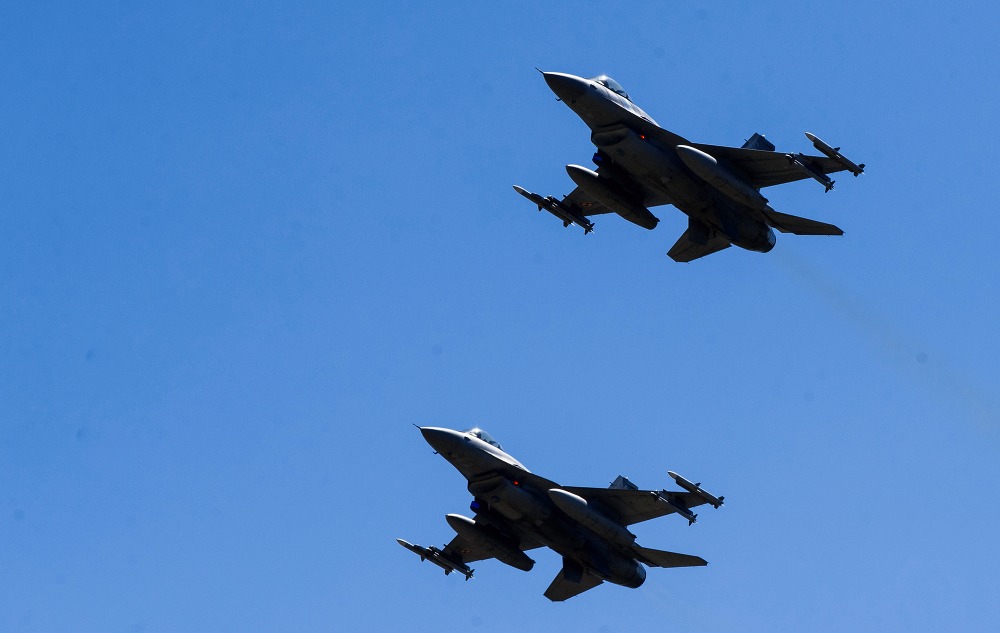A ready-response pair of Polish F-16 fighter jets intercepted a Russian II-20 reconnaissance aircraft conducting a mission in international airspace over the Baltic Sea, the Armed Forces Operational Command announced on Tuesday.
The interception, which occurred on Monday, was made public through a statement on the X platform.
“The interception and visual identification of the Russian Federation aircraft by the Polish F-16s occurred without any violation of Polish territorial waters,” the statement detailed.
An interception by military aviation involves approaching and establishing visual and radio contact with a foreign aircraft, particularly one nearing national airspace without established communication. Fighter pilots can thus identify the aircraft and direct it to follow a specified flight path or, in more severe situations, force it to land at a designated airport.
“Airspace security is a top priority for the Polish military. Our armed forces’ pilots are vigilant and ready every day to protect our skies,” read a statement from the Operational Command of the Armed Forces (OCMA). “Protecting Polish airspace is fundamental to our national security. The efficient functioning of our air defense system ensures we are safeguarded against aerial threats,” it added.
In recent months, there have been several interceptions of Russian aircraft in the Baltic Sea region by Polish or allied fighters, with the last reported incident occurring in May. Russian reconnaissance flights are frequently conducted over the Baltic, primarily originating from bases in the Kaliningrad region.
The NATO Baltic Air Policing mission, involving allied aircraft from bases in Malbork in Poland, Šiauliai in Lithuania, and Ämari in Estonia, serves to monitor Russian aviation activity in the region, patrolling the airspace over the Baltic states and the sea itself.






